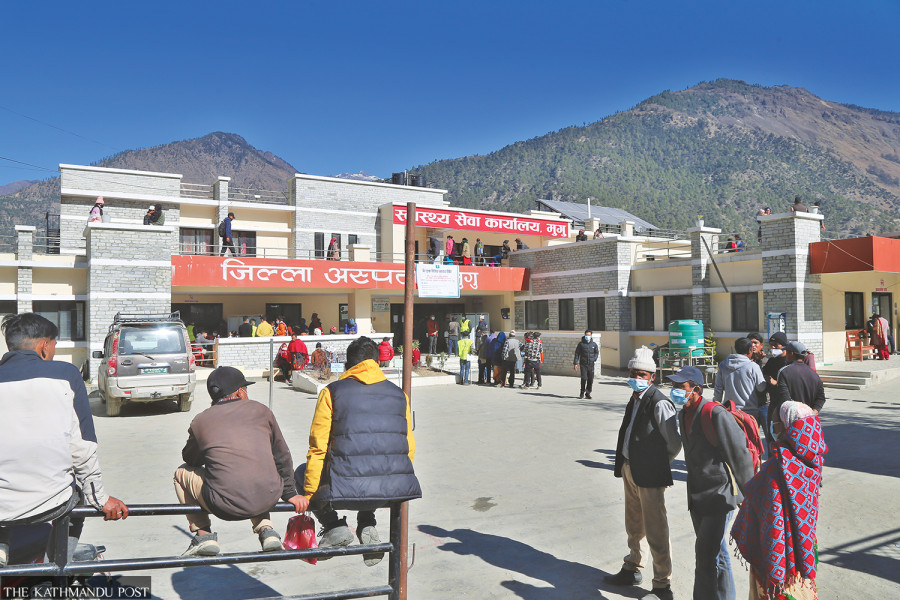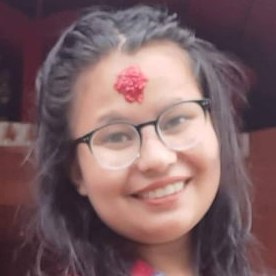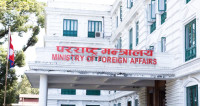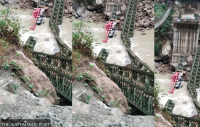National
Doctor shortage chronic in Karnali Province. Recruitment efforts utterly unsucessful
Specialist doctors are sorely lacking as only 10 out of 79 positions are occupied. More than 500 health worker positions are vacant.
Tripti Shahi & Raj Bahadur Shahi
Doctors and health workers think they are being punished when they get transferred to health facilities in Karnali Province, which has been affecting services at public health institutions in the province for years. Even those doctors and health workers who are from outside the province and have been working in Karnali for years say that providing services is challenging although not impossible.
According to the Karnali Province Health Directorate, there are 895 government positions for health workers in the province, but only 314 have been filled. Similarly, there are 79 positions for specialist doctors, but only ten have been filled, and out of the total 157 positions for medical officers, 124 are vacant.
Most of the doctors and health workers from outside the province refuse to work in Karnali, and those who do come, soon apply for leave or transfer under various pretexts, and the posts become vacant again.
Mugu District Hospital of the province has been referring patients for all surgical procedures to health institutions outside the district. Patients have to visit the Karnali Institute of Health Sciences in Jumla, Karnali Provincial Hospital in Surkhet, or Bheri Hospital in Nepalgunj even for minor surgeries and specialist services since the hospital in Mugu has not had any specialist doctors since 2022.
Mugu residents have been put under further financial strain as they have to undertake a one-to-two-day road journey to reach Jumla, Surkhet, and Nepalgunj for treatment.
According to Dr Arjun Bham, a doctor at Mugu District Hospital, surgical services have been hugely affected at the health institution as the only two posts of specialist doctor are vacant.
“In the absence of specialist doctors [eighth-level medical officers as per government ranking], MBBS doctors have been conducting caesarean sections to save the lives of pregnant women. Specialist doctors are reluctant to work in Mugu due to its remoteness,” said Bham.
“Around 120 to 130 people visit the hospital’s outpatient department daily for treatment, with an additional 10 to 15 patients in emergencies and these numbers are slightly more during the monsoon. But there are no specialist doctors. Despite our repeated requests, the provincial government has not been able to send qualified doctors,” Bham added.
Dr Ganesh Thapa from Sainamaina Municipality of Rupandehi, was transferred to the then Surkhet Regional Hospital and now Karnali Provincial Hospital, Surkhet, 17 years ago as a seventh-level medical officer. He completed his MBBS from the Tribhuvan University Teaching Hospital and his Masters in General Surgery from Bir Hospital.
Thapa is currently the eleventh-level medical officer and the chief consultant surgeon at the provincial hospital.
"Earlier, health workers and doctors were reluctant to work in Karnali citing difficult geography and due to difficult topography, lack of transportation and inadequate living arrangements. Many would leave in a year or two for cities such as Kathmandu, Nepalgunj, and Pokhara,” said Thapa.
“But these days, new doctors don’t want to work here due to better opportunities abroad and in cities like Kathmandu. In my team as well, there are no junior surgeons, and despite the hospital management repeatedly advertising vacancies for years, nobody has applied,” Thapa added.
"Most of Karnali comprises geographically challenging hilly and mountainous areas with little development and these things dissuade doctors from working here. It is not that the government and relevant agencies have not tried to bring doctors and health workers here, but they have not succeeded,” said Dr Dambar Khadka, the director of the provincial hospital. “Except for Thapa, there are no eighth-level doctors at the provincial hospital, and when he is on leave, we postpone surgeries,” said Khadka.
Navaraj Kandel, information officer at the Karnali Province Health Directorate, said that except for Mugu, almost all the districts of the province have at least one eighth-level medical officer, commonly known as a specialist doctor.
“We know that the existing ten specialist doctors alone cannot provide services to the people of the entire province. But the situation has been exacerbated by the fact that more than 70 percent of health worker positions remain vacant because the provincial ministry of Social Development and the provincial Public Service Commission have not been able to conduct exams for the recruitment of doctors and health workers,” said Kandel.
“We work under the Ministry of Social Development, and even though the ministry is trying hard to get doctors for the health facilities of the province. Despite their repeated efforts and countless advertisements, only a few apply for health worker positions, but none for specialist positions. Doctors from other districts will come here only if they see opportunities for career advancement,” Kandel added.
Dr Rajiv Shah, director and Gynaecology Specialist Associate Professor at Karnali Academy of Health Sciences, Jumla, is originally from Rajbiraj but has been working at the academy for nine years.
“Due to the shortage of specialist doctors in the province, people from remote areas suffer the most because they cannot reach health facilities on time during emergencies. The women suffer the most, as social taboos prevent timely consultations with doctors, and access to medical facilities. Six out of ten women in remote areas suffer from uterine prolapse or reproductive organ infections,” said Shah.
“I have worked in free health camps in every district of the province, and whenever a team of specialist doctors reaches remote areas, the crowd of people increases day by day until the last day of the camp. Most people cannot afford to travel to cities for treatment, and some are discouraged by the hassles associated with poor roads, among other things,” Shah added.




 11.53°C Kathmandu
11.53°C Kathmandu
.jpg)















